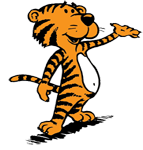1st Grade Newsletter
December 1, 2020
Language Arts
What are we learning?
Learning about Print with Nonfiction
- Use photographs, illustrations, and text to build their understanding and teach others about a topic.
- Develop ideas about a topic and are aware that their ideas can change as they read more.
- Decide whether-or-not to accept the messages of the text.
- Use an organizational pattern that allows them to elaborate on a focused topic in pictures and words.
Home/School Connection
- What did this text get me thinking about?
- What does this author think about the topic?
Math
What are we learning?
Counting and Number Part 2
- Count forward orally by ones to 110, starting at any number between 0 and 110.
- Write the numerals 0 to 110 in sequence and out-of-sequence.
- Count backward orally by ones when given any number between 1 and 30.
- Count forward orally by ones, twos, fives, and tens to determine the total number of objects to 110.
- Group a collection of up to 110 objects into tens and ones and write the corresponding numeral to develop an understanding of place value.
- Given up to 110 objects, compare two numbers between 0 and 110 represented pictorially or with concrete objects, using the words greater than, less than or equal to.
- **Students will learn about Money during asynchronous instruction with provided digital resources**
Home/School Connection
- What patterns do you notice when you count? What happens over and over again?
- How do patterns help us count?
- Why do we count and use numbers?
- How do we know when an amount is a lot or a little?
- What does it mean to count by groups of a number?
Science
What are we learning?
Motion and Sound
- Objects may have straight, circular, and back-and-forth motions
- Pushes or pulls can change the movement of an object
- Objects may vibrate and produce sound
Home/School Connection
- What moves straight?
- What moves circular?
- What moves back-and-forth?
- How is sound made?
Social Studies
What are we learning?
Economics and Geography
- Classify goods and services and how people are consumers and producers.
- Recognize map symbols (land, water, roads, cities, etc.).
- Use cardinal directions on maps (north, south, east, west).
- Construct simple maps that include a title, map legend, and compass rose.
Home/School Connection
- How do people get the things they want?
- Do the maps of today have the same features as the maps of the past?
- What features on maps help us see how places have changed and how they have stayed the same?
Important Dates and Reminders
- Celebrate the end of the year, with 14 Days of Cheer!
Positivity Project
- November 29th - December 5th: Kindness
- December 6th - 12th: OPM - Knowing my words and actions affect others
- Check out some family resources here!

